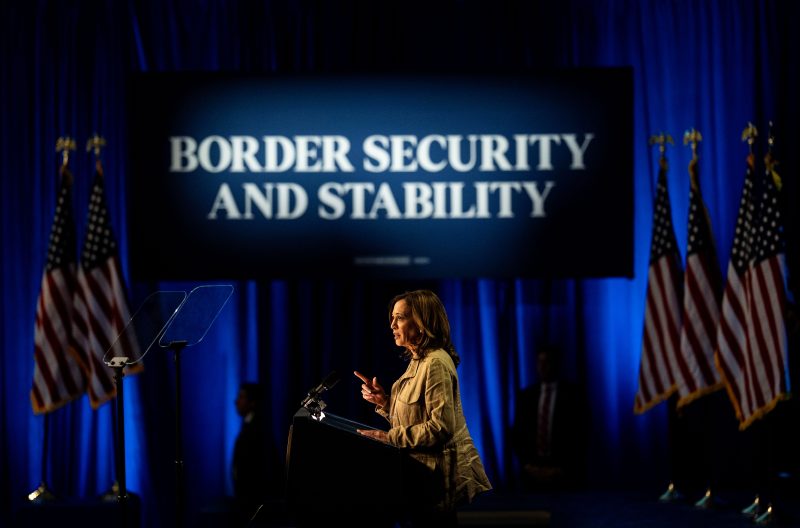In the realm of immigration policy, the dynamics are often complex and ever-evolving. Recently, there has been a noticeable shift in tone and approach as Vice President Kamala Harris takes a more assertive stance on border security measures. However, the response from immigration advocates has been surprisingly muted, raising questions about how various stakeholders navigate this delicate and pressing issue.
Harris, tasked with addressing the root causes of migration from Central America, has emphasized the need to secure the border and deter unauthorized crossings. This messaging, notably aligned with the Biden administration’s broader strategy, marks a departure from the more humanitarian-focused rhetoric often associated with immigration advocates.
While some may perceive this shift as a departure from progressive ideals, others argue that a multifaceted approach is necessary to address the complexities of immigration. By acknowledging the importance of border security alongside humanitarian considerations, policymakers can strive for a more balanced and effective approach to immigration reform.
However, the relative silence from immigration advocates raises important considerations about how different groups strategically engage with policymakers. Some speculate that by refraining from overt criticism of Harris’ border security emphasis, advocates may be seeking to maintain a seat at the table and influence decision-making from within the administration.
Moreover, the nuances of immigration policy require a nuanced response. Balancing compassion for migrants with the need for border security is a delicate dance that demands thoughtful and strategic engagement from all involved parties. While the current administration may not align perfectly with every aspect of the advocates’ goals, finding common ground and working collaboratively towards meaningful solutions remain paramount.
Ultimately, the evolving landscape of immigration policy necessitates a willingness to adapt and engage with different perspectives. By navigating this terrain with diplomacy and strategic foresight, immigration advocates can continue to advance their cause while contributing to a more nuanced and comprehensive approach to immigration policy.

